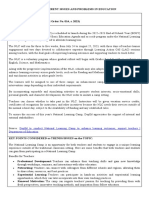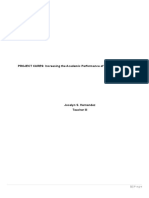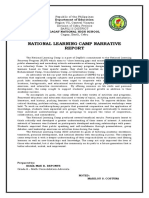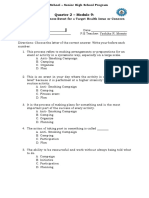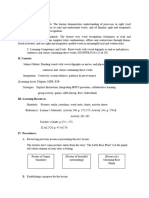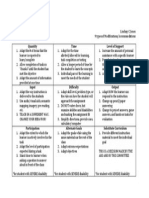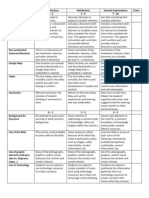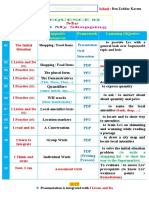Here’s an updated version with three research gaps added to strengthen your introduction:
---
**Problem and Its Background** *(Angel)*
The Philippines is one of the countries in Asia that undergoes development despite its rich and diverse
culture. According to the Philippine Institute of Development Studies, despite efforts to make education
a key priority in the country since independence in 1946, the Philippine education system continues to
face significant challenges that prevent many Filipinos from accessing education. Poverty is one of the
primary reasons why learners or students face challenges in learning. The Philippine Statistics Authority
has reported that approximately 16.7 million Filipinos live below the poverty line, with many of them
struggling to make ends meet on a daily basis. Consequently, education becomes an unaffordable luxury
for many families, especially those living in the most impoverished communities.
The National Learning Camp (NLC) is the comprehensive learning recovery program of the Department
of Education as a means of addressing learning loss due to socio-economic challenges. The NLC is a
voluntary three- to five-week learning recovery program for K-12 learners in public schools. This
program is aligned with the MATATAG Curriculum, which is the new direction of DepEd to resolve the
basic education challenges (Malipot, 2023). In addition, Sevillano (2024) stated that, according to the
office of the Vice President and outgoing Education Secretary Sara Duterte, this three-week National
Learning Camp (NLC) would help 2,183,327 learners in Grades 1 to 3 and Grades 7 to 10, particularly in
their performance in Reading, English, Mathematics, and Science.
However, students often face issues such as difficulty understanding complex topics, time management,
peer pressure, bullying, and high expectations from parents and teachers. According to Gocotano et al.
(2021), students in rural areas face challenges such as unavailability of a network, economic instability, a
digital divide, a shortage of digital devices, a distractive learning environment, expensive internet data,
health-related problems, lack of resources, and a lack of digital literacy skills. These challenges have
adverse effects on students' academic performance and holistic development.
At present, the government, together with the Department of Education, conducts thorough research
on how to effectively teach their students. The increase in learners requires a huge amount of effort in
teaching. This is why the researchers aim to study the impacts of the National Learning Camp on the
performance of Junior High School learners at Mauricio Fabito National High School. Researchers are
interested in conducting this study as they observed that this new approach in teaching and learning has
its impacts on students. This study seeks to examine the impacts of the National Learning Camp on the
academic performance, socio-emotional skills, and motivation of JHS learners at Mauricio Fabito
National High School.
�**Research Gaps**
1. **Localized Interventions**: While several studies have examined the general effectiveness of
learning camps in improving academic performance and fostering student engagement, few have
specifically focused on the holistic impact of the National Learning Camp (NLC) in the context of Junior
High School learners in rural areas like Mauricio Fabito National High School. Most of the existing
literature primarily addresses urban settings or general educational programs, leaving a significant gap
in understanding how localized interventions, such as the NLC, affect learners' socio-emotional
development, personal growth, and sustained motivation. This study aims to address this gap by
investigating not only the academic benefits but also the broader impacts of the NLC on students'
interest, emotional resilience, and personal development in a rural school setting.
2. **Non-Academic Outcomes**: While much of the current literature on learning programs like the
NLC focuses on academic performance (e.g., reading, mathematics, and science scores), there is limited
research on how these programs affect other non-academic outcomes, such as socio-emotional skills,
self-confidence, and interpersonal development. This study aims to fill this gap by assessing the
influence of the NLC not only on academic achievement but also on the development of crucial life skills
that are often overlooked in traditional education-focused research.
3. **Long-Term Engagement**: Many studies assess the short-term outcomes of educational recovery
programs like the NLC, but there is a lack of research that examines the long-term effects of such
interventions, particularly in rural settings. This gap is especially evident in understanding how programs
like the NLC contribute to sustained learner motivation and engagement over time. This research will
explore whether the NLC has a lasting impact on student engagement with their studies, potentially
influencing future educational attainment and personal development beyond the camp's immediate
duration.
---
Let me know if you’d like to refine any part of these gaps!


